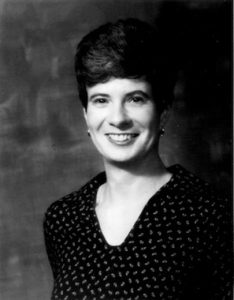What I’ve Learned: Rita M. Harrold
Posted 1/23/2018Retired –IES Director of Technology
President of IES, 1985–86
Not only does each career move result in new and different skill sets, these learning experiences add up and build over time. Perhaps someone’s final career step benefits most from a person’s previous job experiences combined? Towards the end of my career, I felt a greater sense of assurance and comfort in knowing what was required for the job and had a greater enjoyment in my role.
Value relationships. A network of friends, industry mentors, and colleagues has provided support and guidance on so many occasions from those who have had prior experience in similar situations. Knowing on whom to call for sound counsel has been a lifesaver for me.
One thing I learned in school was that you did a lot of your own knowledge gathering—that taught me that you had to learn to do your own research—you weren’t always going to be spoon-fed the information—you had to go dig for it.
I’ve learned to be open to receiving guidance, but to be cautious in giving advice, unless the issue is clearly black and white–because it can backfire! I’ve found that a safer path is being a sounding board and asking questions to lead the other person to arrive at their own decisions. My advice, if pursued unsuccessfully, could have consequences that mar the relationship, particularly on issues that are personal. I’ve learned to try and be a good sympathetic listener instead.
Be true. While we grow and develop in different ways through our experience, stay grounded. Know who you are and always act with integrity. My [British] parents were strict—they instilled a lesson in me that one should never pretend to be what one is not. Always be true to who you are and in what you believe.
Recognize the time for action. There are occasions when taking charge and exercising the right to make a management decision for the group is appropriate especially when there are procedures, rules or implications that require a resolution with a deadline.
My mother lost her mother when she was only 17 years old. A lot of the responsibility for family fell on my mother—she really had to assume her mother’s role at that young age. And she vowed that if she ever had a daughter, she would ensure that [her daughter] would be independent—and she obviously was successful[laughs]! I suspect it sort of backfired on both my parents that I became independent. That’s when I decided to immigrate to the U.S.
Don’t overcommit. I learned that having good organizational skills often results in work overload. “Give a job to a busy person….” is an adage that may have merit but often led to me taking on too much! Don’t promise what you can’t deliver, no matter how interesting the project. Don’t be afraid to say “No.”
I was only 20 when I came to the U.S. British universities were only 3 years, not four years, for an undergraduate degree. I would say, looking back, if there’s anything I would want to change—I was only 17 when I went to University. I think I would have benefited more from the educational experience if I had been older—I would have been a better student. At 17, you’re not mature enough to recognize some of the important things that are going on.
Recognize when the time is right to hand over the job to someone else—know when it’s time for Act 2. Retirement is not the end of a career, unless one chooses to make it so. I learned that it can be the time to give back to the industry and decide in what ways I can continue to make contributions. I chose to continue involvement with standards development through IES and ASHRAE and ANSI and to support the efforts on certification for lighting designers through the CLD program sponsored by IALD. They are all rewarding activities in their goals. Using my knowledge and skills I have learned over time and allows me to have continuing relationships with industry colleagues. And it continues the learning process on my own personal time. What a benefit!




